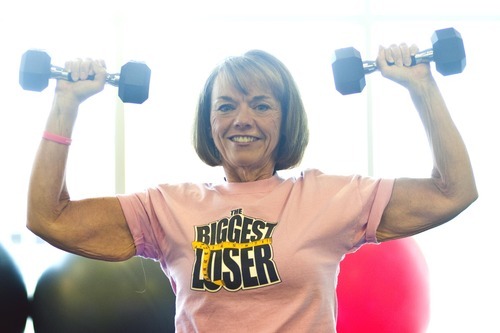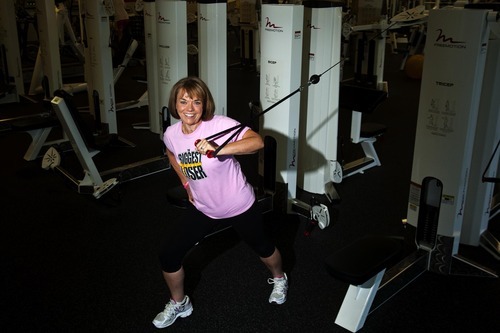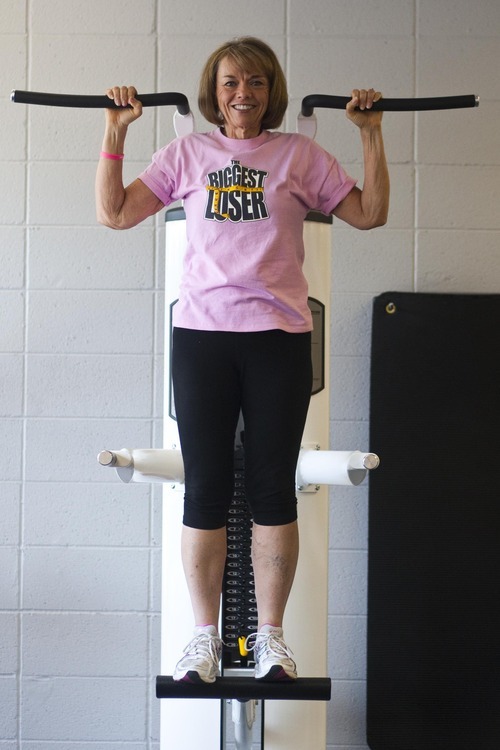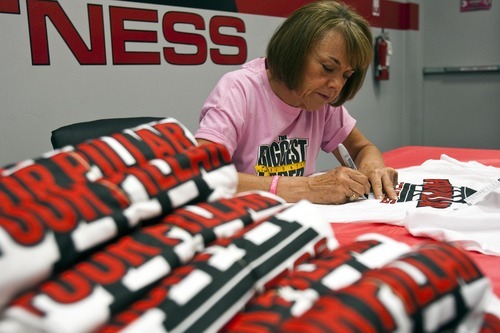This is an archived article that was published on sltrib.com in 2011, and information in the article may be outdated. It is provided only for personal research purposes and may not be reprinted.
For Denise Hill, competing on Season 11 of NBC's popular reality show "The Biggest Loser" was about more than just losing weight.
Yes, the experience helped the 59-year-old Bountiful woman lose 125 pounds, and it earned her $100,000. But it also helped Hill build a better relationship with her daughter, Sarah Nitta, of Las Vegas.
As part of the 2011 season, which featured pairs, Hill and Nitta were able to examine their mother/daughter relationship and bond.
"I don't think I could've done it without Sarah," Hill said. "It was such a unique experience, and it was something where we learned so much about our relationship. It was a great experience to be able to do it with her. It's something that we will always have to ourselves."
Growing up as one of eight kids in the house, there wasn't much time for individual attention, Nitta recalls. That made it especially meaningful when the mother-daughter pair decided to compete.
"It was something that was ours," Nitta said. "It was me and her, and nobody could take that away from us."
Of course, everyone else saw the more visible rewards.
At the end of the season, Hill won the show's $100,000 at-home prize. She had lost 125 pounds to beat the 17 other contestants who also had been eliminated from the show earlier in the season. Her total weight loss was just 4 pounds less than the overall winner, 35-year-old Olivia Ward. The New York opera singer lost 129 pounds, nearly half of her starting weight of 261 pounds.
Hill started the show at 256 pounds and ended at 131 pounds. She went from 62 percent to 22 percent body fat.
No surprise that before she was selected for the show, Hill was in a health crisis. She suffered from sleep apnea, a dangerous condition where the body essentially shuts down and stops breathing for short periods. Hill was also pre-diabetic. With the weight loss, those issues have nearly been eliminated.
Hill attributes her weight gain to a rough childhood. She grew up in a home with a father who was bipolar and a mother who was an alcoholic.
"When they drank, I ate," Hill said. "I'm an emotional eater. It was my everything. I had a lot of anxiety growing up. That's what happens when you come from a crazy family."
"The Biggest Loser" forced her to re-examine her life and think about why she ate and why she didn't exercise. It also forced Hill to find comfort in something other than food.
"She was incredibly disciplined," Nitta said.
Hill worked out five hours a day. Sometimes she did strength training, others she focused on cardio. She had a strict intake plan of 1,200 calories per day.
"You typically see a female plateau within an exercise program, and she never hit one," said Ryan Larsen, her trainer. "She just had continuous weight loss week after week, after week."
Today, Hill stays around 135 pounds, and it's the healthiest she has ever been. She works out two hours a day, is closer to her family, and no longer is an emotional eater.
"I never feel starved anymore," she said. "I feel really good."
Twitter: @tonyaggieville











